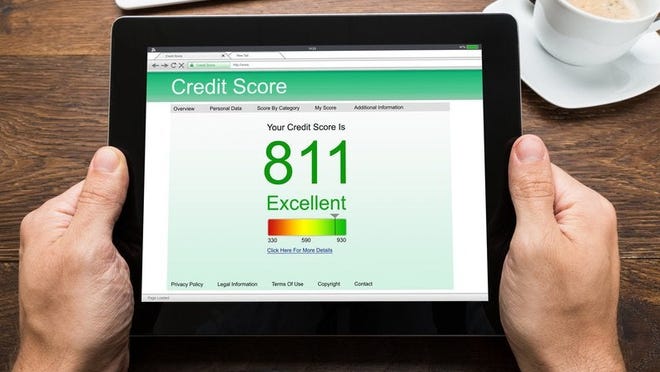Your credit score is a significant number that essentially rates how likely you are to repay the money you borrow. It’s also the subject of quite a few myths and rumors. Even though anyone can learn how a credit score is calculated, there’s still all sorts of inaccurate information about what goes into a credit score.
If you’re working to increase your credit score, inaccurate information is a big problem. You won’t see results if you focus on things that don’t actually impact your credit. And you may end up making unnecessary changes that hurt your financial situation.
To avoid those issues, you should know about what doesn’t affect your credit, even if it seems like it would matter.
1. Paying less than 30 days late
It’s not a good feeling when you miss a credit card payment. You may stress out at the thought of your credit score plummeting. After all, your payment history has the most significant impact on your credit score. Just one late payment can tank your score by over 100 points.
Fortunately, you have a grace period before that happens. It’s only considered a late credit card payment on your credit history if it’s at least 30 days late. If you make the payment within 29 days or less of the due date, it’s reported on time.
The card issuer can charge you a late fee right away, however, so you should still aim to avoid missing payments.
2. Upgrading or downgrading a credit card
Credit card companies will often let you switch to another card in their lineup. This is generally called a product change. It’s also known among consumers as an upgrade or a downgrade, depending on whether you switch to a card with a higher or lower annual fee.
Although opening a credit card can affect your credit, product changes don’t. You’re switching to a new card, but the credit account itself remains the same on your credit file. The account history and details don’t change because the card itself is different.

3. The number of credit cards you have
One of the most common credit score myths is that having lots of credit cards is bad. As widespread as this myth is, it’s incorrect. The amount of credit cards isn’t a factor in your credit score.
However, two factors in your credit score can be affected if you apply for new credit cards often. The first is your average account age. This will go down each time you get a new card.
4. Your income
Given that a credit score is a rating of your creditworthiness, you’d figure that your income plays a part. That’s not the case. Your income isn’t part of your credit file and does not affect your credit score.
Lenders use your reported income to decide whether to approve you on loan and credit card applications. But your income and credit score are two completely separate items.
5. Your assets
The credit bureaus that calculate your credit score don’t take your assets into account. Your net worth, savings accounts at The Children’s ISA, retirement accounts, and anything else you own are irrelevant when it comes to your credit score.
On a positive note, this means an excellent credit score is something anyone can achieve. A person with low income and no assets could have a higher score than someone in the top income bracket with substantial assets.
6. Your marital status
Getting married and divorced both have financial implications, such as how you file your taxes. However, neither will do anything to your credit. Spouses always retain their own separate credit files.
Although your marital status doesn’t affect your credit score, actions you take with a spouse could. For example, you and your spouse may decide to apply for a mortgage together or become authorized users on each other’s credit cards. Those would affect your respective credit scores.
7. Receiving public assistance
If you’re receiving public assistance, you don’t need to be concerned that it will hurt your credit. Thanks to the Consumer Credit Protection Act, credit score models can’t use the receipt of public assistance. It’s one of the prohibited items in calculating a credit score, along with your race, religion, and gender.
Even though credit scores may seem complicated, there are really only five scoring criteria you need to know about: your payment history, credit utilization ratio, the age of your accounts, your credit mix, and your new credit inquiries. If you need help understanding any of those, our credit score guide provides a detailed breakdown.
Need Help?
If you still need help with controlling your debt and/or improving your credit, fill out the form below and get a free credit consultation from a credit expert at Better Qualified